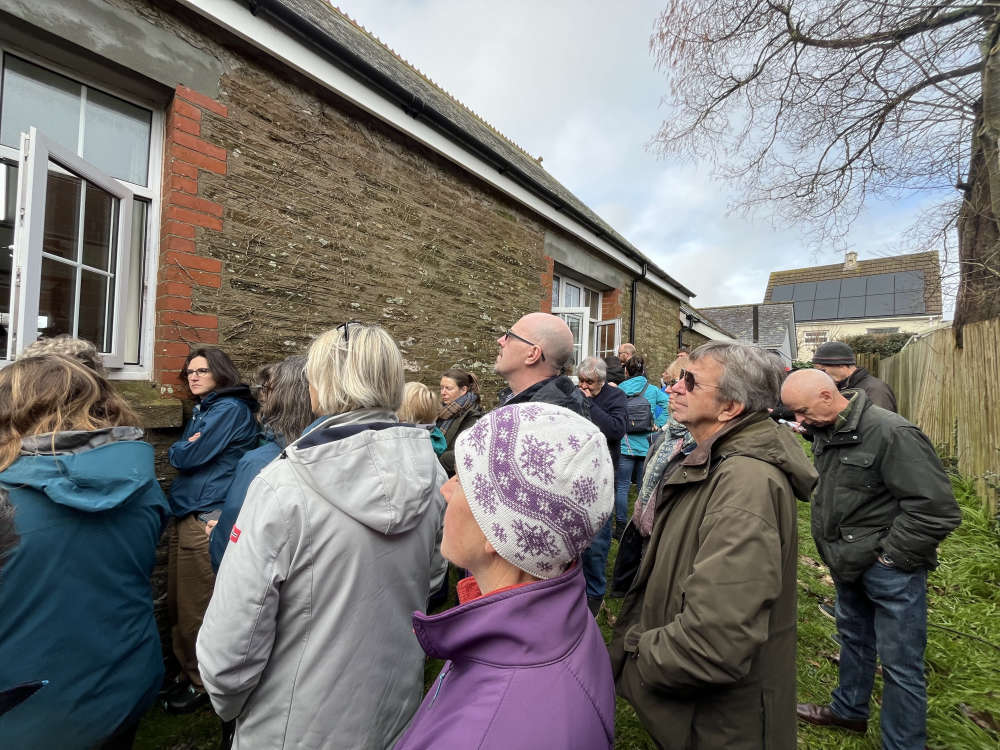
16-year-old says she received a lack of support
A Plymouth teenager will be attending a special educational needs and disabilities (SEND) protest in London next month, to stand up for children and families like her who she says have been let down by the system.
The 16-year-old is advocating for change after she says a lack of support left her without full time education and declining mental health.
She is calling for a range of reforms which will make a “huge difference” to the lives of many young people with SEND in Plymouth
In this report we refer to the student as Isabel to protect her identity as she is under 18.
Isabel is autistic with complex additional needs and a year ago she was diagnosed with functional neurological disorder (FND) which causes symptoms such as seizures and sensory issues.
She says since ‘year nine’ her support in school has been “significantly reduced” and there have been inconsistencies in her education, health and care plan (EHCP), which details what help she needs.
She says although there were times when she received 100 per cent support, on occasions she only got 40 per cent from Notre Dame school where she is a pupil.
And she refers to a recent occasion when she was alone in the school’s sensory room during a seizure, despite there being a medical care plan put in place by the school.
“I woke up with my polo shirt covered in blood from biting my tongue and was inconsolably crying in distress,” she said. “Staff were unable to answer basic but vital safeguarding questions, such as how long the seizure lasted or what type of seizure it was.”
Isabel said her EHCP was formally put in place last December, but her 1:1 support had started earlier as emergency funding had been granted to the school, after several incidents where she had difficulty in managing emotional responses which led to extreme reactions, a condition called dysregulation.
But she said her 1:1 support in lesson time was often interrupted when learning assistants were pulled away for other matters deemed “urgent” or to engage with other students, often for extended periods.
The student said this happened on a daily basis and as a consequence she was not able to fully engage with her learning.
The care plan included 1:1 support during lunch and break times but the school insisted this was not required, she claimed, adding that her mum had to collect her during these times to make sure she was safe for the sake of 30 minutes.
Isabel said that she had been placed on a reduced timetable since October 2022 but from June 2023 to February 2024 she was not in education at all and then only received four hours a week, impacting her academically and socially.
She said she went from top sets to bottom sets within a year and ultimately lost the opportunity to take any exams.
“I didn’t have my first full day back at school until 28 April 2025, my first in 900 days,” she said.
The teenager said, however, that she had experienced periods of high level support including adaptations in the environment during her time at Notre Dame, and mental health support through CAMHS (Child and Adolescent Mental Health Services) at Mount Gould Hospital. And things had improved with her mental health since building a strong relationship with her new learning support assistant, which had enabled her to come off anti-depressants.
It had been frustrating though that her three suspensions from school were listed as ‘persistent disruptive behaviour’ which “I believe fails to reflect the reality of what happened and discriminates against me as a complexly autistic student”.
She said Plymouth City Council had been “fairly supportive” bringing forward the EHCP review and was in weekly contact, offering support and guidance but she is calling for more specialist schools in the city, a reduction in the waiting times for neurodivergent diagnoses and more SEND support groups as well as in-depth and specific training for school staff on the different needs and presentations of neurodivergent students.
“But the biggest issue for me is what happens after a child’s diagnosis,” she said. “Parents are handed the paperwork and then nothing; there isn’t any follow-up, guidance, or any conversation about next steps or available support. You’re given the label, but not the essential help and early intervention/support.
“Overall, professionals often don’t take neurodivergence seriously, despite the fact it comes with very real and significant challenges.”
These and a host of other reforms will be highlighted at the SEND rally taking place on September 15 in London, on the day a debate takes place in parliament about protecting the legal rights to EHCPs.
“I personally want to be there to advocate for myself but also to advocate on behalf of the countless families across the city who have also been let down by the system,” said Isabel.
“In my opinion when multiple people come together to make their stand the outcomes can often be very positive.”
A spokesperson for Notre Dame School, said: “The health, safety and wellbeing of all our students is always our top priority. Upholding this commitment, we do everything we can to ensure a positive, welcoming and inclusive educational experience for our entire school community.
“It is not appropriate for us to comment on individual matters, however, we would like to take this opportunity to reassure our students, families and colleagues that whenever a concern is raised, we always follow our robust policies and procedures. This enables us to take quick and effective action, be that working closely alongside our students and their families or collaborating with external agencies and experts, to provide the appropriate support.”
Plymouth City Council was found to have widespread failings in SEND provision in June 2023 by inspectors from the Quality Care Commission and Ofsted and told to take urgent action to address them. Since then the authority has been working on a SEND improvement plan.
A Plymouth City Council spokesperson said: “We have overhauled the process for Education, Health and Care Plans, in collaboration with our partners and through listening to the voices of young people and their families.
“There is now a simple process for requests for assessment and the timescales for decisions have significantly improved. We have also introduced additional targeted funding support for schools so that children and young people can access the right support, at the right time, with appropriate resourcing – with or without a statutory plan.”
A £13 million programme of work to improve support for children and young people with SEND by increasing the availability of special school places in Plymouth was under way, they said, and included a new satellite provision for Mill Ford School with an additional 50 permanent special school places from September.
“This is part of our SEND Sufficiency Plan which aims to address the shortage of suitable school places for children and young people with SEND in Plymouth. The plan includes reconfiguration and refurbishment of some of the city’s special schools to increase their current capacity, as well as developing more specialist places within mainstream schools through the building of more resourced provisions.
“Through this work, a further 34 new special school places have also been created for this coming September, bringing the current total number of new places to 84.”
The council said that most children’s needs could be met in a mainstream setting and, to support this, additional top-up funding has been allocated to those with higher levels of need in mainstream schools
Cllr Sally Cresswell, cabinet member for education, skills and apprenticeships, said: “We have seen a big rise in demand for special school places in recent years, with far more requests for places than the number of places available.
“We understand how frustrating this can be for families, and our SEND Sufficiency Plan clearly sets out how we will maximise the limited resources available in order to provide more specialist provision so that our children and young people with SEND receive the support they need.”
The council in collaboration with teachers, practitioners, parents and carers, recently launched a new website and resource directory outlining the Plymouth Graduated Approach to Inclusion (GATI) at https://plymouthgati.co.uk. This supports schools, young people and parents and carers by setting out the support available to ensure that their needs are met.
 Devon rapist jailed for 19 years
Devon rapist jailed for 19 years
 Children arriving at Paignton school ‘cold, tired and hungry’
Children arriving at Paignton school ‘cold, tired and hungry’
 Geologists called to survey Exeter landslip
Geologists called to survey Exeter landslip
 Video shows Co-op ram-raid
Video shows Co-op ram-raid
 Residents devastated by destroyed coastal road
Residents devastated by destroyed coastal road
 Bad parking blamed for Torquay bus route changes
Bad parking blamed for Torquay bus route changes
